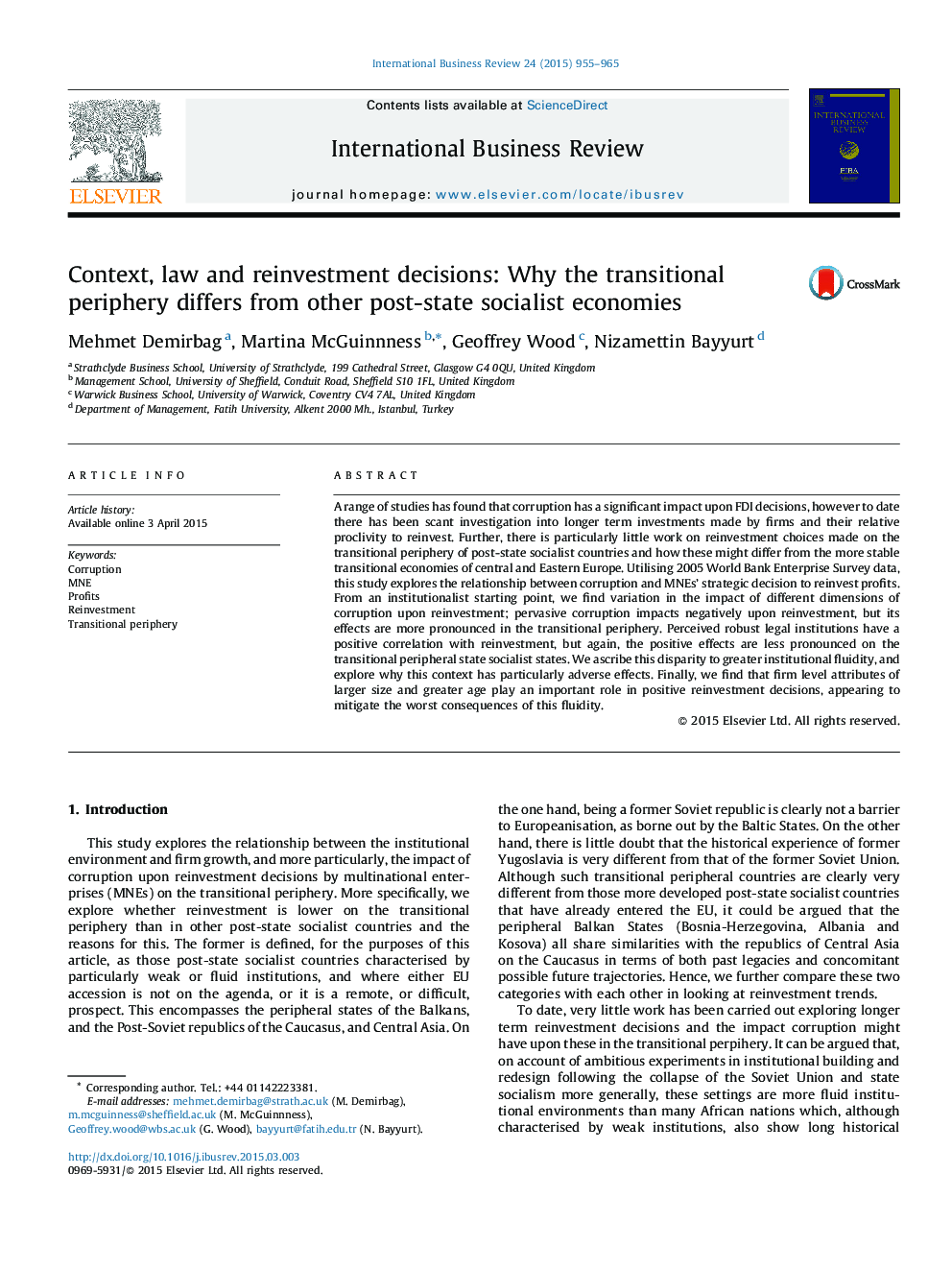| Article ID | Journal | Published Year | Pages | File Type |
|---|---|---|---|---|
| 10488108 | International Business Review | 2015 | 11 Pages |
Abstract
A range of studies has found that corruption has a significant impact upon FDI decisions, however to date there has been scant investigation into longer term investments made by firms and their relative proclivity to reinvest. Further, there is particularly little work on reinvestment choices made on the transitional periphery of post-state socialist countries and how these might differ from the more stable transitional economies of central and Eastern Europe. Utilising 2005 World Bank Enterprise Survey data, this study explores the relationship between corruption and MNEs' strategic decision to reinvest profits. From an institutionalist starting point, we find variation in the impact of different dimensions of corruption upon reinvestment; pervasive corruption impacts negatively upon reinvestment, but its effects are more pronounced in the transitional periphery. Perceived robust legal institutions have a positive correlation with reinvestment, but again, the positive effects are less pronounced on the transitional peripheral state socialist states. We ascribe this disparity to greater institutional fluidity, and explore why this context has particularly adverse effects. Finally, we find that firm level attributes of larger size and greater age play an important role in positive reinvestment decisions, appearing to mitigate the worst consequences of this fluidity.
Keywords
Related Topics
Social Sciences and Humanities
Business, Management and Accounting
Business and International Management
Authors
Mehmet Demirbag, Martina McGuinnness, Geoffrey Wood, Nizamettin Bayyurt,
